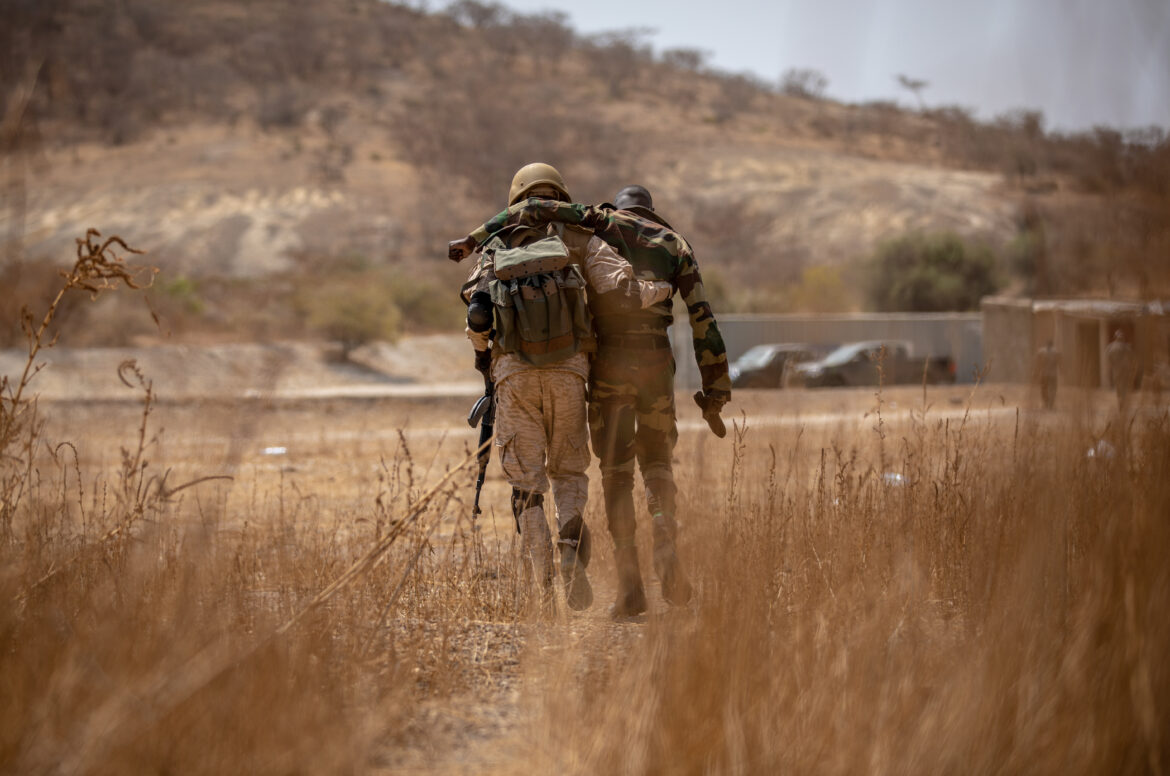In the last couple of years, a number of West African states have been faced with military takeovers. These coups, aided by internal instability brought about by numerous factors ranging from the COVID-19 pandemic to the interference of foreign powers such as France, came as no surprise and were largely welcomed by the civilian populations. Mali, Guinea, and Burkina Faso, West African countries now under military leadership, have since been suspended from a number of regional organisations including the African Union and the Economic Community of West African States (ECOWAS). However, efforts by these organisations to remove military leadership and return these countries to democracy have been met with resounding failure. This is because these organisations have focused on punishing the military regimes in control instead of targeting the underlying trends that led to the military seizure of power.
Having experienced two coups since 2020, Mali was the first country in West Africa to begin the domino effect of recent military takeovers. In mid-2020, after a series of protests caused by allegations of government corruption, mismanagement of the economy, and the ongoing insurgency, the Malian Armed Forces under Assimi Goïta began a mutiny against the government of Ibrahim Boubacar Keïta. After detaining Keïta, the government was dissolved and a transitional government under interim President Bah Ndaw was established with Goïta as the vice president. However, less than a year later, Goïta once again led the military in a mutiny against the incumbent administration and ousted Ndaw from power, claiming that he had been sabotaging the transition back to democracy. The French military, which maintains a large presence in West Africa due to its colonial ties to the region, has scaled back operations with the Malian military after Russian military advisors were reported to have arrived in the country.
After the second Malian coup in just a year, other countries began facing similar situations. In 2010, Alpha Condé became the first freely elected leader of Guinea after decades of dictatorial rule. Although his administration led to a massive improvement in the economy, the majority of the population had not felt the benefits from the economic boost. In 2020, Condé held a referendum which, among other things, allowed him to run for a third term. This controversial change to the constitution led to a wave of protests and finally, after announcing budget cuts for the military and increased spending on public officials, mutineers led by Mamady Doumbouya arrested Condé and dissolved the government in September 2021. After the coup, Doumbouya was installed as the interim president of Guinea and promised to re-found the state with free and fair elections. If Doumbouya continues along the current plan for a transition back to civilian rule, he would not be allowed to run in future elections.
In early 2022, Burkina Faso became the next country to face mutiny from the armed forces. Burkina Faso, which has been facing a Jihadist insurgency since 2015, has a long history of military rule going back its revolutionary founder Thomas Sankara. In January 2022, gunfire erupted from the presidential residence in the Burkinabé capital Ouagadougou. Led by Paul-Henri Sandaogo Damiba, a faction of the Burkina Faso Armed Forces self-styled as the Patriotic Movement for Safeguard and Restoration detained president Roch Marc Christian Kaboré and dissolved the government. The coup was justified with the failure of the government to adequately counter the ongoing Jihadist insurgency. Damiba was installed as the interim president, however just 8 months later his rule came to an end when dissatisfied factions of the military, particularly the “Cobra” special forces led by Ibrahim Traoré, began a mutiny. Traoré, a young military officer with alleged ties to the Russian Wagner Group, installed himself as the interim president with supporters waving Russian flags as he entered the Ouagadougou.
A common theme of these military takeovers, besides the obvious implications for democracy in the region, is the popular support they were all met with. Instead of protesting the military leaders involved in the coups, civilians have responded with protests against the removed leaders. This reflects the situation that these countries find themselves in; with faith in democratic institutions effectively shattered and having nowhere else to turn to, the civilian populations look to the military as a source of liberation. In the root causes of these coups we also see a number of common threads; governmental corruption and inability to combat violent extremism as well as the interference of colonial powers. In particular, France has maintained an active presence in its former colonies and continues to have much sway over military and economic activities in the region.
In attempting to mitigate potential military takeovers, regional organisations such as ECOWAS have largely ignored the root causes and instead opted to punish the regimes involved with sanctions and diplomatic suspensions. Though these responses may effectively grasp control away from the military, it does nothing to solve the underlying issues inflicting these countries and will only further fuel the dissatisfaction with the regional status quo. Without proper reflection on these issues, military coups, both successful and unsuccessful, will continue to occur and the region will not be able to stabilise.
Edited by Anyssa Boyer
Alexander Morris-Schwarz is a third-year student at McGill University where he is majoring in Political Science with a minor in Communication Studies. Alexander is currently a staff writer for Catalyst and he is interested in international relations and imperialism.


How do you think the Ivorian Crisis in 2010 fits into your piece? Was there significant involvement from regional actors? The military rallying around the fight against Boko Haram also unites the West African nations. Do you think that affects the regional response?